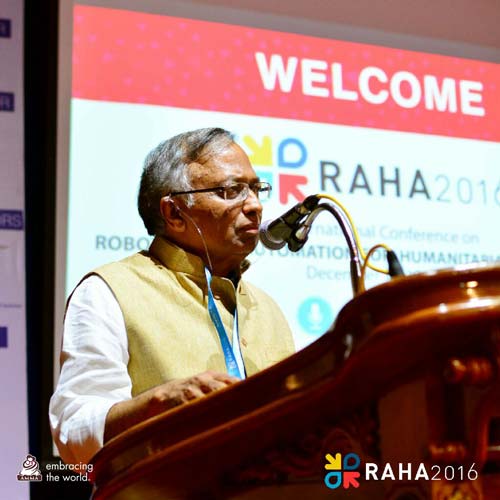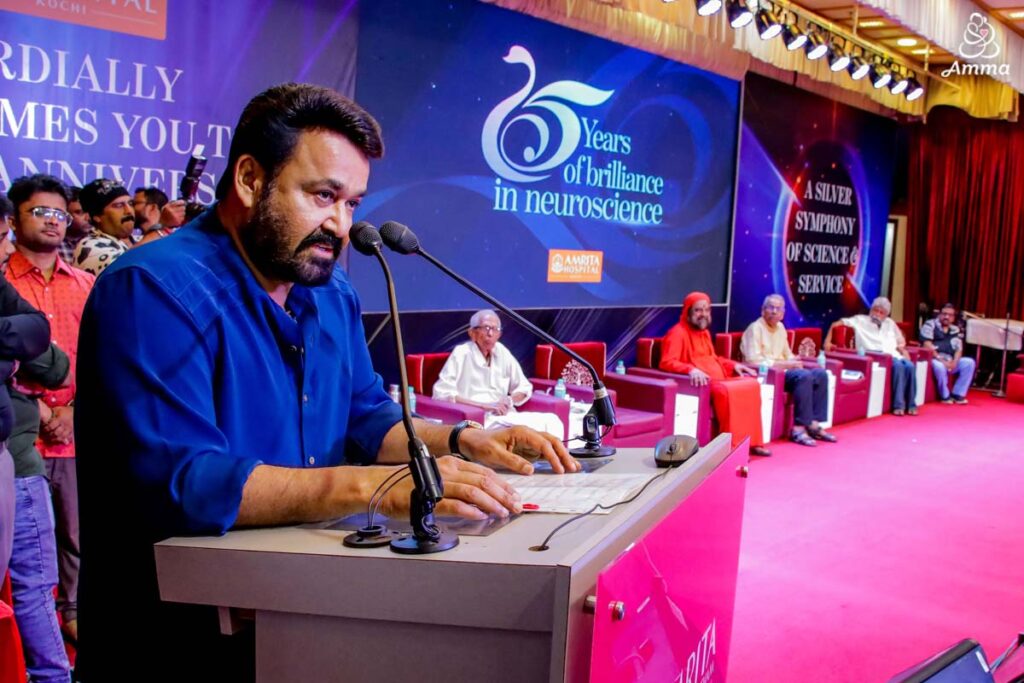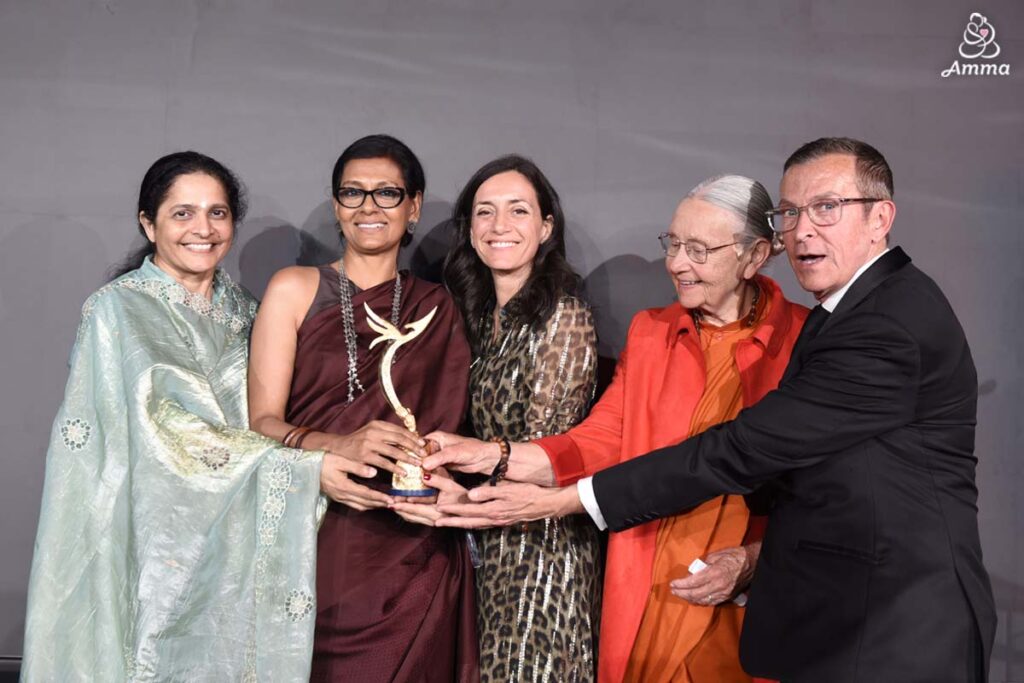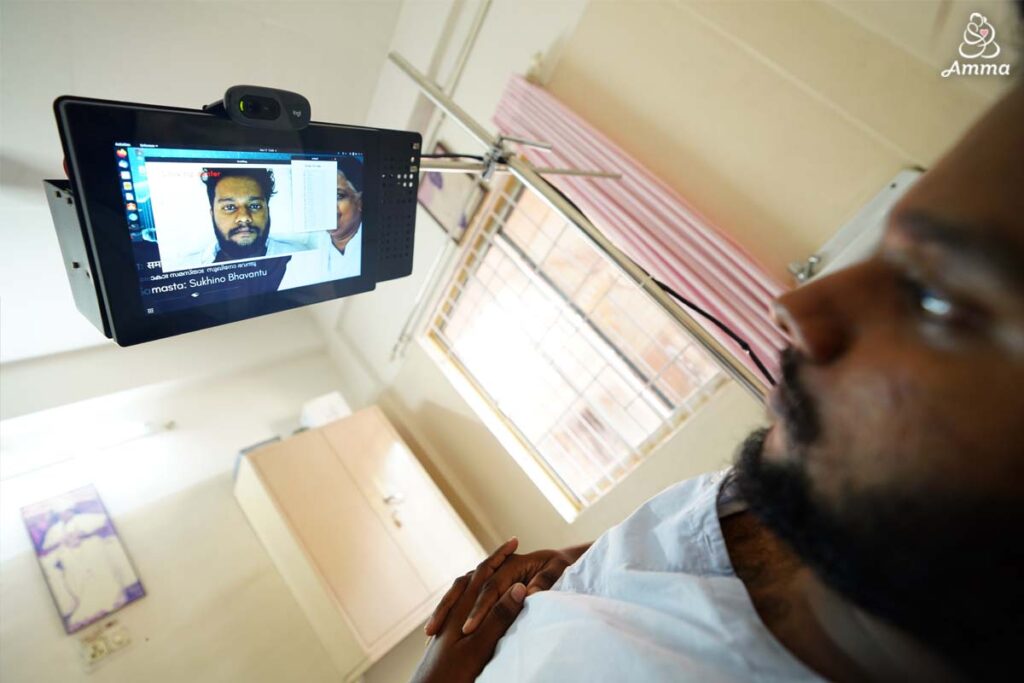The International Conference on Robotics and Automation for Humanitarian Applications (RAHA) 2016 was intended to provide a forum for scientists, engineers, field workers and policymakers to discuss current research and exchange technical ideas that advance global humanitarian action.
The conference aimed to connect technological innovators and humanitarian field workers, creating a link between fields that often are considered separate and unrelated. Together, the conference attendees tried to identify gaps in knowledge in the field.
In his talk, Prof. Ronald Arkin, Associate Dean at the College of Computing at Georgia Tech, pointed out the ethical side of dealing with robots in human robot interaction, and the social norms and legal requirements that need to be enforced in the process. “Robotics is a double-edged sword, we must minimize the downside, while maximizing its potential to help society”.




Later in the day, Meg Jones, Chief of Economic Empowerment at UN Women talked about inclusive solutions for our future and explained in-depth on how to link the UN’s 17 Sustainable Development Goals (SDGs) with technological advancements in the robotics field today. She expressed her fascination regarding the work Ammachi Labs was carrying out in impoverished communities across India. “If the work being done at Ammachi Labs could be deployed across the world, it would be of enormous benefit”.
Paul Verschure, Director of SPECS (Synthetic, Perceptive, Emotive, and Cognitive Systems) Lab, at University of Pompeu Fabra, Barcelona continued the theme of using robots to benefit humans in the lower classes of society with his talk, “Living Machines for a Dignified Society”. “Technology is the methodology of perfecting nature’s processes”, he stated. Following the keynote talks the paper presentations began, with separate tracks on robotics-based education, and path planning respectively.
The second day of RAHA 2016 was filled with experts across multiple disciplines, starting. The 2011 tsunami in Japan triggered the decontainment of the major Fukushima Daiichi Nuclear Power Plant, causing harmful levels of radiation to escape into the atmosphere. Prof. Hajime Asama of the University of Tokyo, and Vice President of Robotics Society Japan, highlighted how robotics technologies were used to effectively respond to the situation and led to the decommissioning of the plant. Prof. Asama was optimistic as to the potential of robotics across multiple disciplines, stating “Robotics technologies will be embedded in all fields in the future”.
With the pressing global warming crisis looking progressively bleaker, Herve Le Treut, Climatologist, of the French Academy of Sciences said “Robots are required in order to acquire and analyze data at a far greater scale than possible with human sensors”. Projecting simulations of the present day carbon dioxide emissions into future scenarios, he stressed the need to take an active step in reducing emissions as the first step towards mitigating, if not stopping the destruction of our environment today.
Meanwhile, students from various colleges, were also actively presenting posters throughout the day, ranging from applications of infrared camera sensors to detect unhealthy plants in a farm, to smartphone controlled all-terrain robots.
The much awaited plenary talk of Dr. Vijay Bhatkar, Founding Director of CDAC, also known as the Father of India’s first supercomputer, was the first of the afternoon. He started his talk by highlighting the importance of maintaining a human vision throughout the path of science and technology. “One should have passion in their mind, compassion in their heart, to complement the technology in their arms”, he said. Dr. Alaa Khamis of Suez University seconded this notion, stating in his interview that people need to be educated to understand the benefits that robotics technologies have to improve the overall quality of life throughout all social classes.
In the final session of the day, Dr. Taskin Padir of Northeastern University, in a keynote session over Skype explained the applications of robotics in epidemic response, stating that as engineers we need to first identify the right problems to solve, thus putting our existing technologies and knowledge to proper use.




The final day of RAHA 2016 began with wonderful insights through a teleconference call by the fifth and final plenary speaker at RAHA: Dr. Jeffrey Sachs. Jeff Sachs, an American economist and director of The Earth Institute at Columbia University holds the title of University Professor, the highest rank Columbia bestows on its faculty. He is known as one of the world’s leading experts on economic development and the fight against poverty and has authored several New York Times best selling books. From his home in New York, Dr. Sachs commended Amrita University for its deep roots in technologies for social good and innovations for humanitarian purposes.
“I am really delighted to be part of RAHA 2016. Let me start by congratulating you at Amrita for the amazing accomplishments. I follow your work and innovative teaching methods that you’re developing, the haptic controlled teaching, the water projects and other sustainable development projects. We see each other a lot at international meetings whether it is at the Vatican or at the UN or in India. And I just admire tremendously what you’re doing and hope that I can be a good partner with you as you continue to expand your work and your reach.”
He outlined India’s pioneering initiatives in using information technology and mentioned how India has the potential to be a leader in development through technology. He reiterated the significance of this conference as an important player in strategizing ways to implement the SDGs.
“My view is that the SDGs are achievable but they cannot be achieved through a ‘business-as-usual basis’. We need innovative technologies, we need leapfrogging. The universities have to play an expanded role if we are to achieve sustainable development. Amrita is exactly a paradigm of this as are India’s IITs and IIMs. The universities have to be proactive to develop the new technologies and operating systems for sustainable development in this century.”
Beyond RAHA: Deepening The Conversation To Define An International Research Agenda With Leading Experts In The Future Of Robotics And Applications In Academia
All the invited speakers and several experts, researchers and students convened at two high-level meetings to brainstorm the next steps. An outline of a manifesto was drafted with the agreement of all the speakers to offer their inputs for a working document that will be collaborated on over a specific time-frame. The ideas at RAHA 2016 would not merely remain as ideas, but be put into practice and developed upon, allowing the vision of robotics technologies for humanitarian purposes to become a reality.
Shri P.P Chaudhary Union Minister of State, Ministry of Law and Justice, and Ministry of Electronics and Information Technology was the chief guest at the closing ceremony. After spending the day at Amrita University touring the various labs, departments and technology centers, he said, “This inspiring conference brings together world class experts, visionaries and students with a common goal: to deliberate and visualize technologies that do not exist yet, but can be invented to solve the problems of mankind.”
An award ceremony was conducted for best papers and posters, and awards were given to the Andhra Pradesh school children and the students from Amrita Vidyalayam, Puthiyakavu.
After three days of speakers from all over the world pushing solutions for a sustainable future for all, using robotics and automation to break the cycle of poverty among the lower classes of society, RAHA 2016 has proved that if we can come together across disciplines and participate in an open dialogue to map out the way forward, positive change is very much within our reach.
In her role as Chancellor of Amrita University, Amma met with the invited experts and renowned scientists who had come to attend the conference. The wide-ranging conversation touched on Amma’s concern for those living in the radius of Fukushima and her appreciation for the role robots had played in the decommissioning of the plant; her observations on the state of technological innovation in India today and the potential for that innovation to improve the quality of life, especially for India’s rural poor; and her view of the importance of maintaining an open, beginner’s mind in order to stay receptive to one another and engage in lifelong learning. The researchers and experts expressed their appreciation to Amma for having hosted the world’s first conference on robotics for humanitarian application, and requested her to deploy solutions innovated at Amrita throughout the developing world. Amma expressed a willingness to do so and also offered broader insights on the spiritual underpinnings of all the service-oriented work and research done by Amrita University, and how a spiritual outlook can magnify manifold both our will and ability to make a positive impact in the world.





